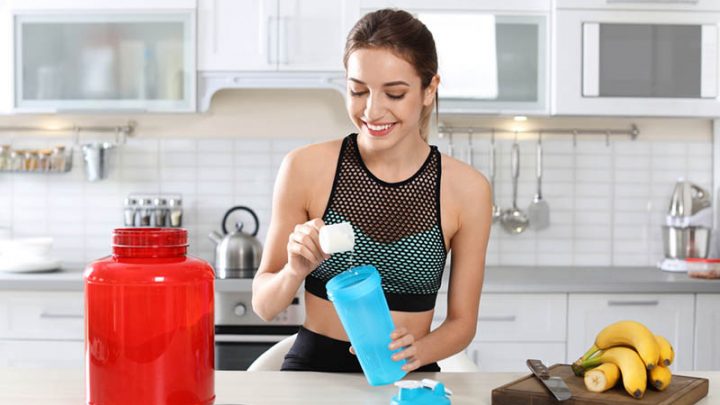Most breastfeeding moms are told to not be too active postpartum in order to prevent potential complications or any negative effects on the nutritional value of your breast milk, but is a pre workout while breastfeeding that unsafe?
The answer? A pre workout while breastfeeding is completely fine, though there are some measures that have to be taken.
One of the main concerns is staying hydrated.
As a new mom, part of your body works on milk production while the other works on keeping the rest of you functioning normally.
When you put exercise into the mix, there is an increase in the amount of water that you need to consume to keep all of these processes running smoothly.
Aside from being careful of dehydration, it’s important to know what pre workout supplements are safe for breastfeeding, if you choose to use any.
While I’ve never really been big on the idea of creatine, energy drinks, protein powders, and the like or hard workouts in general, I do realize that it’s a big thing for a lot of new moms who want to get back to their pre-pregnancy weight.
This article aims to help fellow moms choose the right products, talk about common misconceptions, and provide information on the proper steps for any mammas going into full workout mode postpartum.
Is A Pre Workout While Breastfeeding Okay?
While the answer to this question is a “yes” there are still things to be wary of.
If you’ve had a C-section
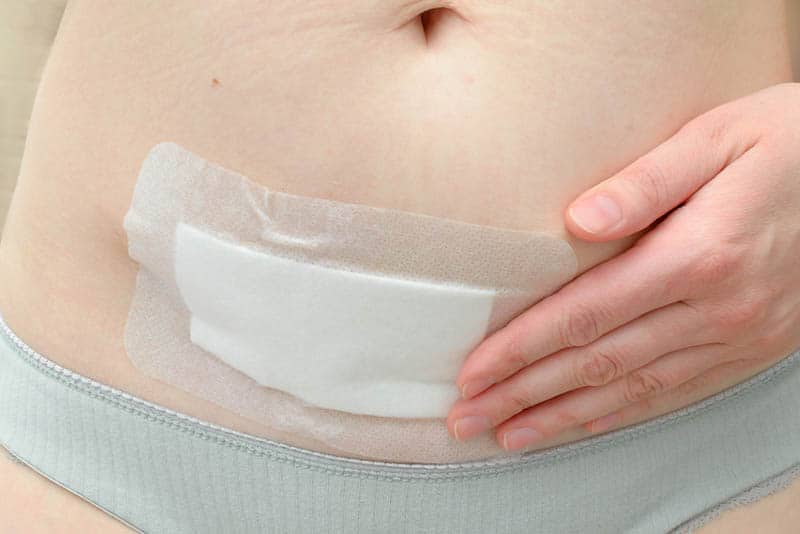
If your child was delivered through a Cesarean section, it’s wise to wait until the scar heals and your doctor gives you the green light to actually start setting up a workout plan.
Doing otherwise is likely to cause unnecessary complications, potentially re-opening your C-section scar.
Trust me, just be patient and let everything heal.
The workouts can wait a few weeks.
I know it might be tough to wait because postpartum depression can hit hard, especially for the body-conscious mammas out there who want to lose weight while breastfeeding.
Those few extra pounds are just baby weight that’ll shed off soon enough.
If you’re exercising regularly

The exercise itself won’t have a major effect on any of your main bodily functions, but the needs that it imposes will.
The main one, which I addressed at the start of the article, is hydration. Our bodies will always need a steady supply of water during the day and exercising increases this need.
It’s important to keep your fluid intake up because dehydration is the real culprit when it comes to messing up your bodily functions, especially your milk supply.
Many of the misconceptions related to exercise and pre workouts while breastfeeding being bad for you are actually just a lack of awareness and education about the real issue.
If you can, try minimizing your caffeine intake too.
This means no bottle of coke, no morning cup of coffee, no green teas, or any other caffeine-based products.
Not only will they affect your breast milk making it unsafe for your child to drink, they’ll also affect you negatively and dehydrate you.
Believe me when I say that the exercise alone will energize you better than caffeine ever could.
It’ll take time for it to kick in and it might not create as big of a buzz as coffee would, but it’ll feel a lot better overall.
Always make sure to keep a bottle of water handy so you can refresh yourself if you start feeling the signs of dehydration setting in.
Another thing to take note of is the build-up of lactic acid in your body.
While still unproven, some mothers do claim that the extra lactic acid that’s released from the muscles due to exercise ends up in the breast milk making it taste a bit more sour than usual.
However, it appears that very few children actually notice the difference in taste so it’s not really that big of a concern unless they have a really sensitive palate.
Doing a pre workout while breastfeeding will cause you to sweat a lot more so it’s in your best interest to take more frequent showers.
Don’t overdo it though because you could end up actually damaging your skin.
It’s important to at least shower after exercising before a feed so your child doesn’t taste the saltiness of your sweat on his lips.
The taste of sweat is far more likely to drive your little one away from the breast than an extra bit of lactic acid will.
Is There Any Benefit To Exercising During Breastfeeding?
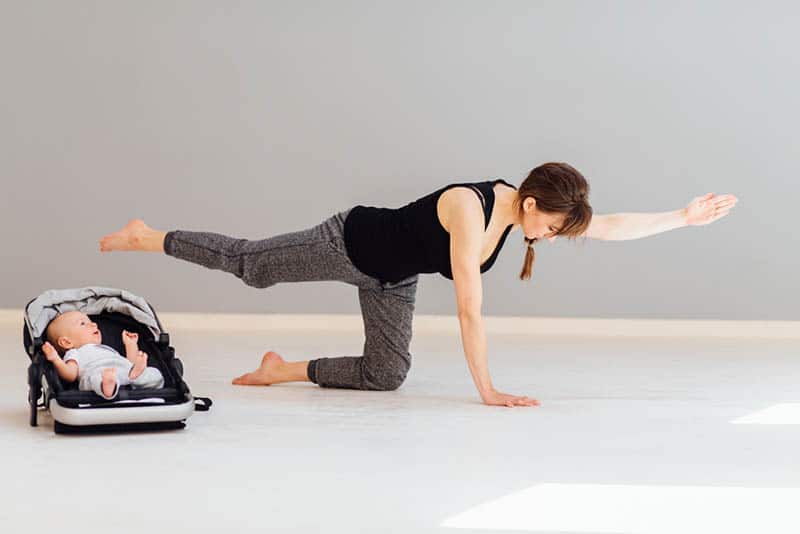
According to some, there is.
We all know that exercising keeps our bodies healthy by promoting normal functioning, but it also helps boost our immune system’s response.
Now, some of this extra immunity apparently transfers over to the breast milk, making it better quality and providing an even better boost for your little one’s immune system.
But if you don’t have the time or energy (or both) to fit an extra workout into your already busy schedule, don’t beat yourself up over it.
Is It Safe To Take Workout Supplements?
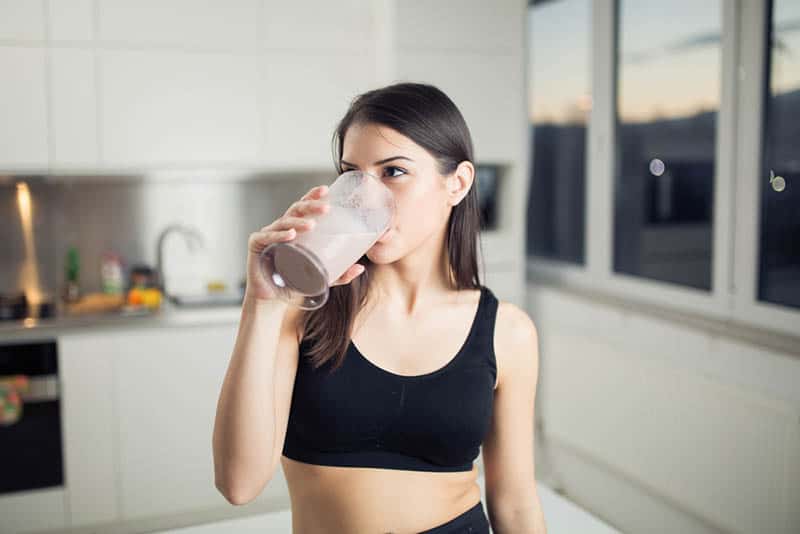
This is where the big question lies, is supplementation a yes or no?
Either way, questioning the type of product you’re getting, is of paramount importance.
Not all of them are safe for moms who’ve recently delivered.
It’s also worth noting that dietary supplements are just that, supplements.
They’re not meant to replace any part of your daily diet, just add to it.
If your overall aim is weight loss, then a mix of a balanced, healthy diet, a lot of determination, and a planned out exercise regime is the trick.
The supplements are completely optional.
Before you start taking any, it’s best to seek advice from a doctor, a lactation consultant, or any other kind of qualified health care professional.
They’ll be able to tell you what’s healthy for you and what isn’t as well as the potential side effects of some supplements should you choose to take them.
This is especially recommended for any first-time moms who aren’t quite yet aware of what’s safe and what isn’t but who want to breastfeed and exercise.
So what are the recommended pre workout drinks and workout supplements then? Read on to find out.
Which Workout Supplements Are Safe For Breastfeeding Moms

Most supplements out on the market nowadays will come with a warning label indicating whether or not they’re safe for use by pregnant or breastfeeding mothers.
Should they not be then it’s a no-brainer that you should avoid them at any cost since they might cause some unnecessary complications.
However, there are some that are deemed to be safe but will advise you to ask your doctor first on whether or not they’re safe for you specifically, much like with anything during that very sensitive period of your life when you’re responsible for two lives, not just your own.
So what are these potentially safe supplements then? Here are the ones that I’ve found that people have allegedly used:
1. 100% Whey Protein
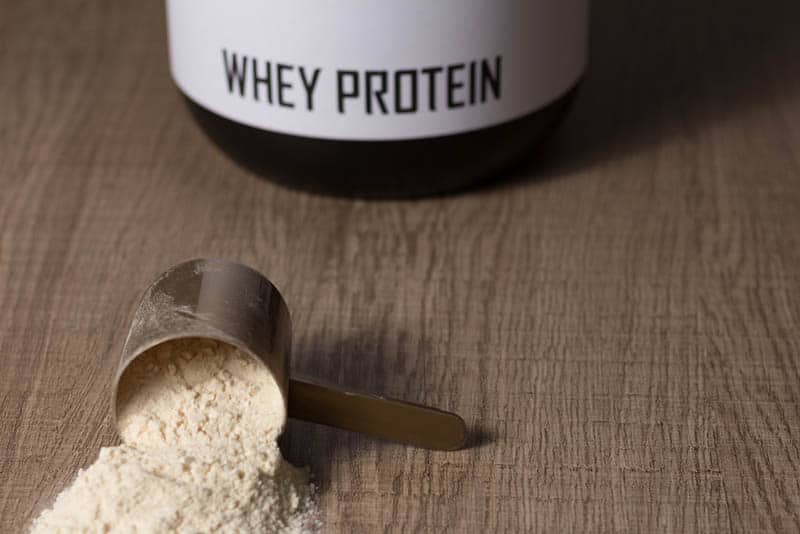
Protein is essential for maintaining a healthy body. Almost every part of your organism needs protein to grow.
It’s probably already part of your daily diet so a supplementary dose of it shouldn’t hurt.
However, this is not necessarily the case for your little one.
While it is rare for babies to react negatively to a protein supplement, they still have a less developed digestive system and body in general than you do, thus, they might not be able to process the extra amounts as quickly.
This could end up impacting them negatively and, even though it might not cause any major problems, it’s probably best to avoid the risk.
If your baby becomes slightly fussier more often than usual, if they’re feeling cranky, or if they have an upset tummy, it might be time to consider replacing the product or ditching it overall.
The same applies if you notice your child has diarrhea and/or their poop comes out green – the likely cause is excess protein in the diet that their body just wasn’t able to digest which leads to an upset stomach.
Don’t feel too bad if it does happen though, some kids simply have more sensitive stomachs than others and it might happen even if your doctor approves the protein supplement for use.
Luckily, the side effects should subside after you stop taking the product.
2. Creatine
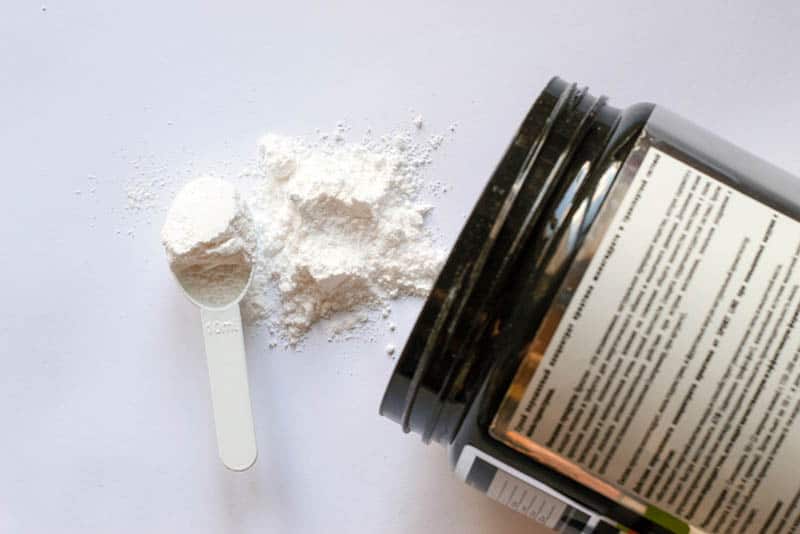
This is another important building block for further muscle growth and for helping bind protein to the muscle tissue to help it recover at a faster rate.
It’s an amino acid that’s quite popular among bodybuilders and any gym goers that want to get a bit of definition going at a slightly faster rate.
It shouldn’t affect your child in any negative way, though you should adhere to specific dosages.
That said, at worst, your child will feel bloated and might burp a bit more often or maybe even spit up because of excess abdominal discomfort, but nothing more.
Once again, before you even consider taking creatine, make sure to consult with your doctor.
Your child’s safety is your number one priority and while it shouldn’t impact them negatively, there are always a few rare cases as with anything.
3. Branched chain amino acids (BCAA)
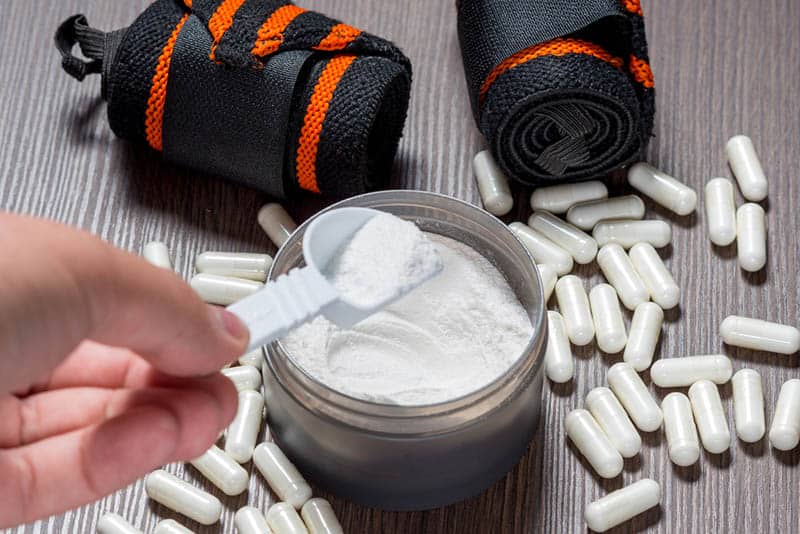
This is another group of amino acids, like creatine, that assist in rebuilding muscle tissue and speeding the regenerative processes up.
BCAAs in particular help relieve sore muscles and get rid of the lactic acid build-up that causes them. It also acts as the glue that helps bind proteins to the muscle tissue to better absorb it.
Much like creatine, it can help supplement the body’s increased needs and be very beneficial to a mother to help reduce her daily fatigue caused by mothering, exercising, and other forms of physical labor.
Its side effects are minimal, some nausea or a headache at worst in normal cases, but if your child is, for whatever reason, exceptionally reactive to them, it might be worth looking for a replacement.
Make sure to pay attention to any changes in your child’s behavior when you start using the product and try and determine if it’s directly related.
And, it goes without saying, make sure to talk to your doctor before taking the supplements to determine whether or not they’re actually safe for you.
4. Pre-workout with caffeine
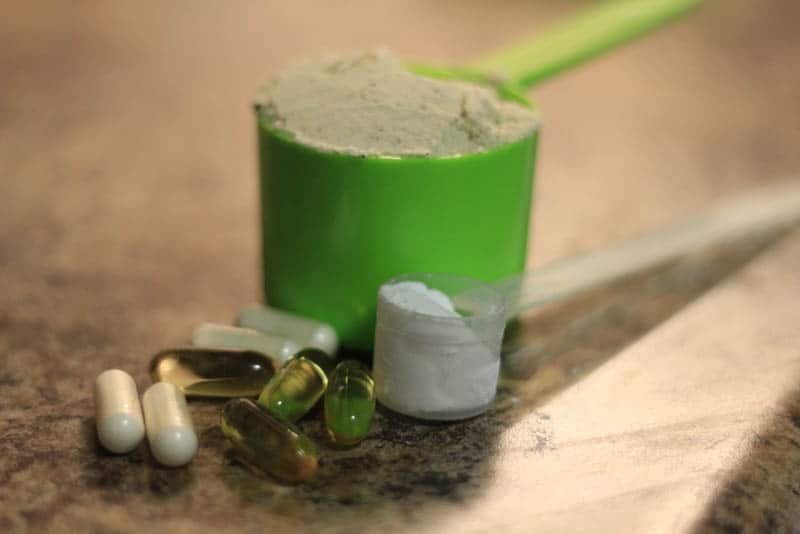
This supplement is a bit of a gray area.
Ultimately, it will come down to your own personal opinion on the matter.
It’s a workout supplement that contains a stimulant to put some pep in your step, however, this stimulant is caffeine, a substance whose use is typically discouraged in pregnant and breastfeeding moms.
That’s because caffeine transfers through the breast milk to your child.
It then builds up in their system because it’s not capable of digesting caffeine as quickly as ours.
The resulting build-up will eventually lead to potentially dangerous complications.
So, can you take pre-workout while breastfeeding?
While a bit of caffeine can be okay, the usual daily recommended dosage is only 400mg.
But, even at that low level, it’s still a risk and, if at all possible, shouldn’t be taken at all, especially considering it’s an optional product we’re talking about here.
If you believe you’re not even close to your daily caffeine intake limit, then you might be given the green light to use pre-workout, but if you’re always treading dangerously close to the line, I’d advise staying away from it.
Which Workout Supplements Are NOT Safe For Breastfeeding Moms
Fat burners
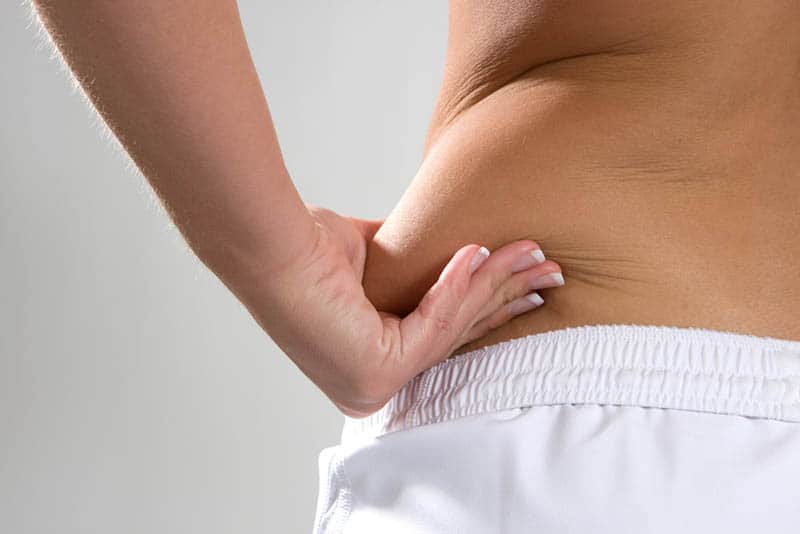
All the other products on the list above may have been an OK or a maybe, but fat burners are a good example of what not to consider taking for your pre workout while breastfeeding.
Fat burners contain both caffeine and ephedra – as explained above, caffeine can be detrimental to your child’s health as they’ll be feeling the side effects much sooner than you.
Ephedra on the other hand has been banned for use by the FDA due to its drug-like effects on the body resembling a shot of adrenaline or a dose of speed.
There might be some manufacturers on Amazon whose products still contain it so be careful during checkout.
Outside of that, weight loss supplements are definitely not recommended simply because the contents transfer over to the child through mother’s milk and the goal is for your little one to gain weight when they’re young, not lose it.
With all that in mind, my heartfelt opinion on the use of fat burners is to stay away.
Safe And Easy Workouts For Breastfeeding Moms
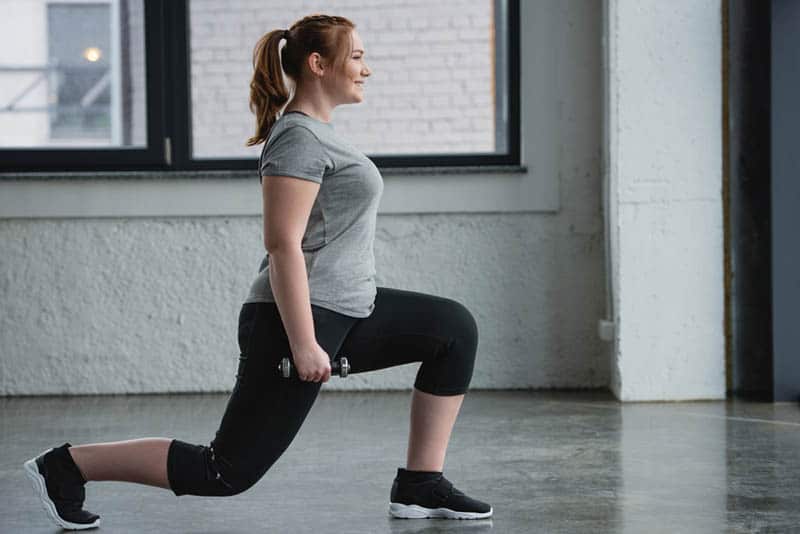
Now that that’s out of the way, it’s time to figure out how and when to exercise.
You can organize your schedule with your spouse or partner so that you can squeeze in regular workouts while they care for the baby. A babysitter is always a good option as well.
If this isn’t possible, then you can wait until it’s your little one’s naptime.
That way you’ll have enough time to get in a few quick exercises and your boobs will be a bit lighter so they won’t get in the way of things. There will also be less risk of your nipples leaking milk onto your sports bra.
This is not an uncommon occurrence and to be honest, nipple shields can be super uncomfortable during exercise so, this really is a great solution.
As for what’s guaranteed to be both safe and easy in terms of workouts, consider anything that doesn’t put too much strain on your pelvic floor or abdomen in case those are still in recovery.
The best options, in that case, are often forms of light exercise such as jogging or the stretches and workouts that were typical of morning TV back in the day.
Ultimately, I’m a firm believer that the best form of exercise you can consider would be yoga.
It’s excellent, both pre and post pregnancy, in helping keep your muscles ready without the need to go too hard into any supplements.
It’s a minimalist workout that achieves maximum results.
Your body stays lean and ready and it helps properly distribute your existing weight.
Plus, it doesn’t put too much strain on any single muscle so the potential of a diastasis recti, a cramp, or any other complication is far less likely.
In Conclusion

Doing a pre workout while breastfeeding isn’t bad at all and is often beneficial, as long as you remember to stay hydrated and follow the advice given to you by your doctor or any other qualified healthcare professional.
Also, avoid doing any exercise if you’ve had a C-section until your scar heals fully – you don’t want to risk any potential complications.
The option of using different health supplements is also on the table, but make sure that your doctor gives you the green light before taking them.
Don’t go out making decisions like these on your own, decisions that are going to potentially impact you and your child in a negative way.
Always make sure to consult with your doctor on the matter because they’re the ones with the most insight and will be able to give you the most accurate answer, especially because they’re more informed about your specific needs.
I hope that this has been insightful and that you’ve managed to gain a bit more information on this specific topic.
I know that you’ll end up making the best decision for you and your little treasure. Until next time, mamma.
READ NEXT: Why Baby Won’t Latch And 15 Ways To Fix It
References:
• Medline (N.D.), “Creatine”, Medline website.
Like this post? Please share or pin it for later. You can also stay in the loop and follow us on Facebook, Instagram or Pinterest.
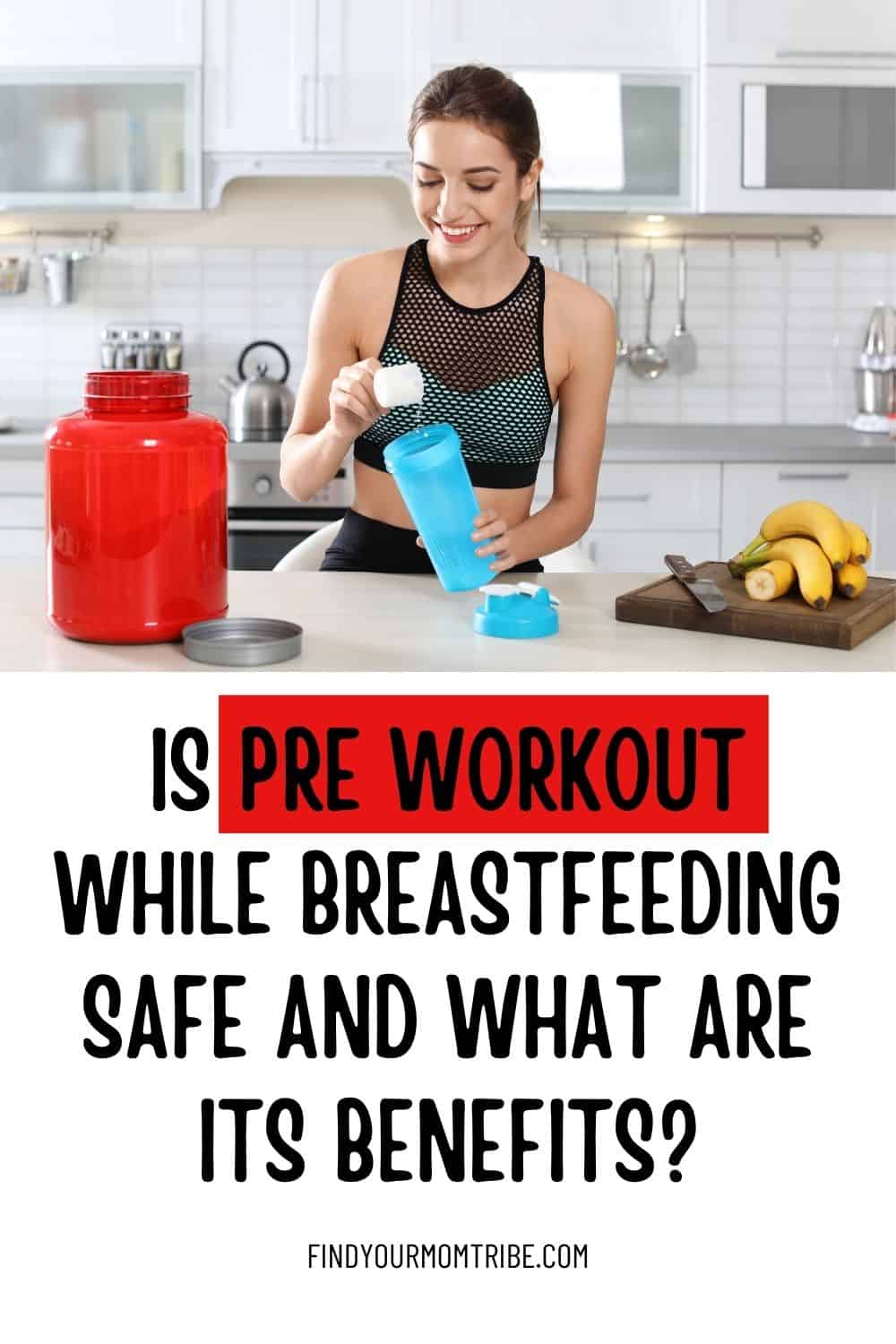
We love honesty! Find Your Mom Tribe is an Amazon Associate and we earn from qualifying purchases through affiliate links at no extra cost to you. Please see our full Amazon Affiliate disclosure for more information.

